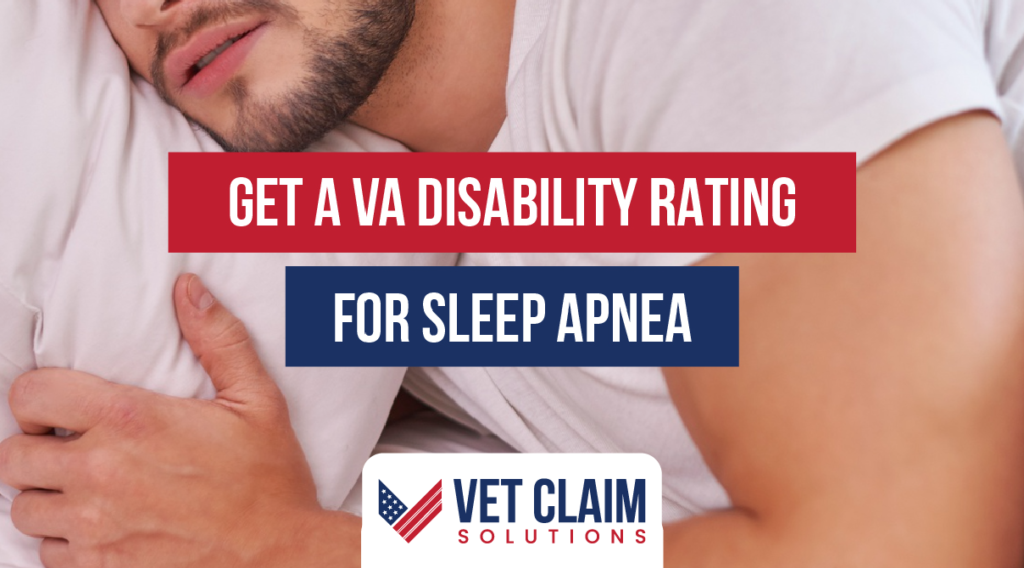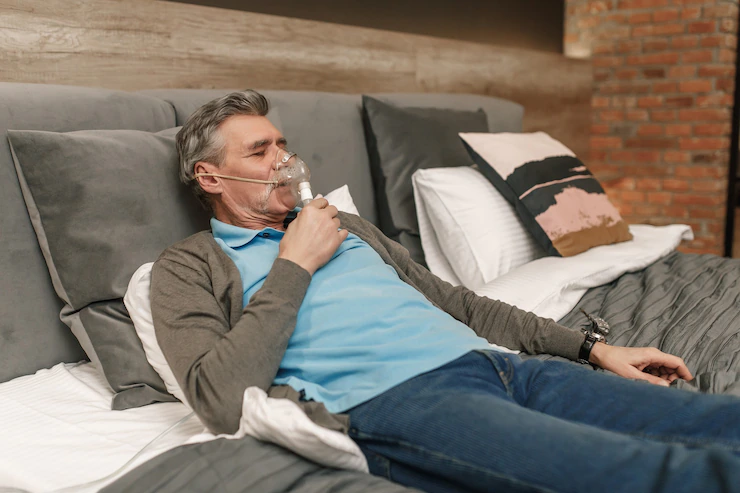
Sleep apnea is a serious sleep disorder where an individual’s breathing is interrupted multiple times during the night. If left untreated, it can cause significant health problems and even death. Fortunately, veterans may receive disability compensation for their sleep apnea if they meet certain criteria by the Department of Veterans Affairs (VA).
In this article, we’ll discuss obtaining a VA disability rating for sleep apnea and what veterans can do to ensure their claim is successful.
1. What is Sleep Apnea?
Sleep apnea is a potentially serious sleep disorder characterized by periods of shallow or paused breathing during sleep. It can result in loud snoring, daytime drowsiness, and fatigue even after a full night’s rest. In severe cases, it can lead to high blood pressure, heart disease, stroke, and even death.
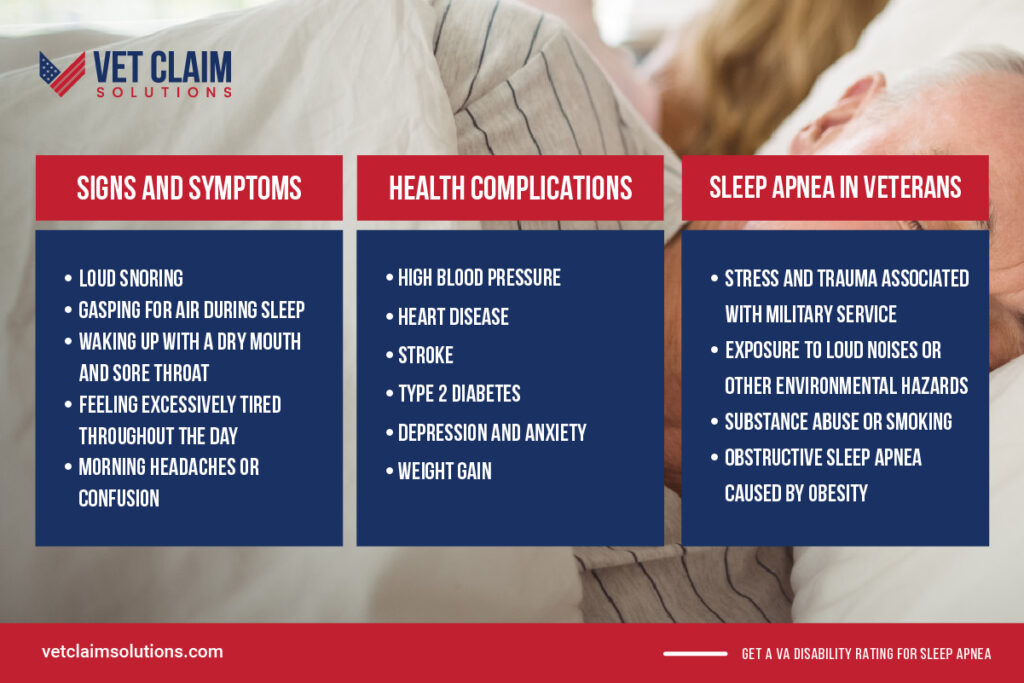
a) Signs and Symptoms of the Condition
There are several common symptoms associated with sleep apnea that could indicate a veteran has the condition, including:
• Loud snoring
• Gasping for air during sleep
• Waking up with a dry mouth and sore throat
• Feeling excessively tired throughout the day
• Morning headaches or confusion
b) Health Complications from Sleep Apnea
Sleep apnea can have serious consequences for a veteran’s health. Some of the complications associated with this condition include:
• High blood pressure
• Heart disease
• Stroke
• Type 2 diabetes
• Depression and anxiety
• Weight gain
c) Why is Sleep Apnea so prevalent in veterans?
Sleep apnea is one of the most common sleep disorders among veterans, with an estimated 20% suffering from the condition. This can be attributed to a variety of causes, including:
• Stress and trauma associated with military service
• Exposure to loud noises or other environmental hazards
• Substance abuse or smoking
• Obstructive sleep apnea caused by obesity
2. Getting Diagnosed with Sleep Apnea
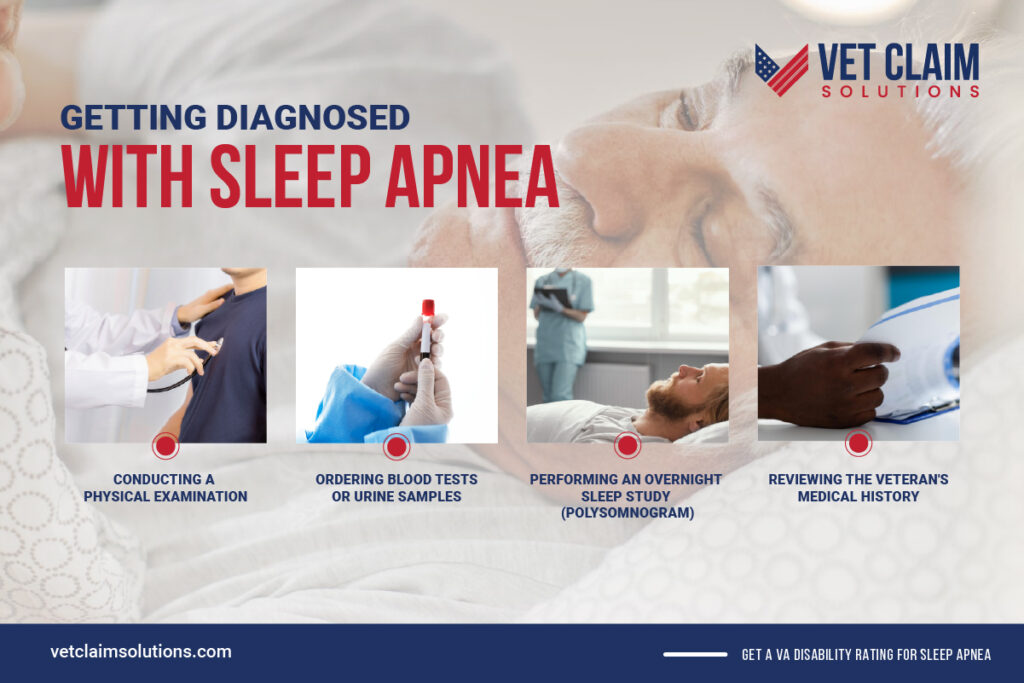
To receive a VA disability rating for sleep apnea, veterans must first obtain a sleep apnea diagnosis from their doctor. There are several methods a physician can use to diagnose the condition, including:
• Conducting a physical examination
• Ordering blood tests or urine samples
• Performing an overnight sleep study (polysomnogram)
• Reviewing the veteran’s medical history
After a diagnosis, your doctor will provide you with a written report outlining the severity of your condition. This document must be submitted to the VA as part of your disability claim.
3. Current VA Rating for Sleep Apnea
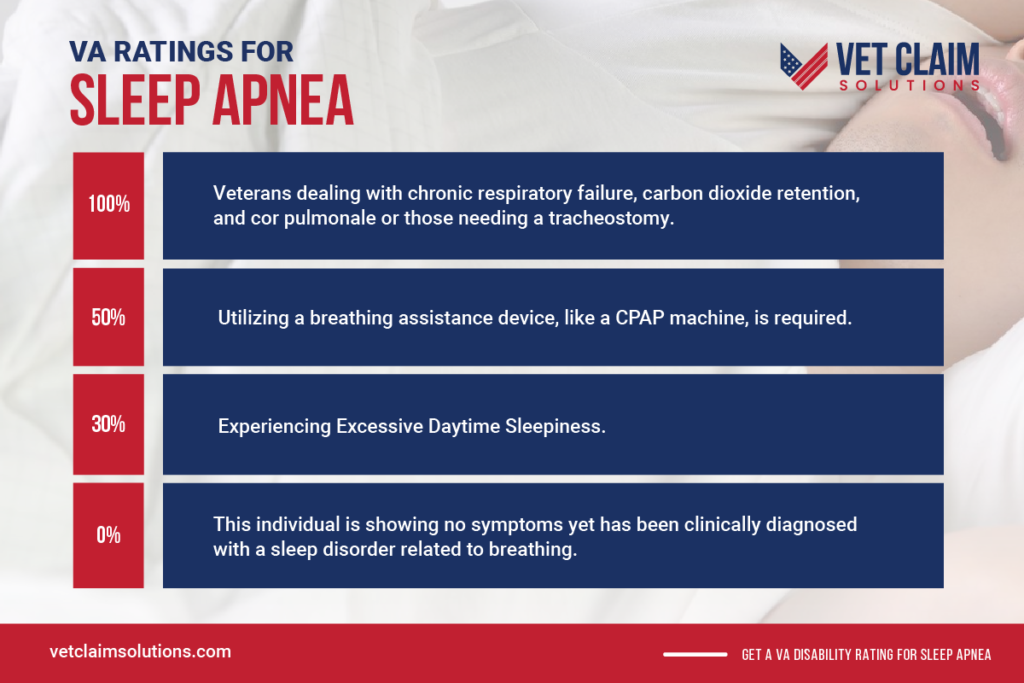
The VA currently assigns disability ratings for sleep apnea based on the severity of a veteran’s condition. The ratings range from 0 to 100% and can provide veterans financial compensation for their condition.
Here is an overview of the current sleep apnea VA rating system:

100%: Veterans dealing with chronic respiratory failure, carbon dioxide retention, and cor pulmonale or those needing a tracheostomy.

50%: Utilizing a breathing assistance device, like a CPAP machine, is required.

30%: Experiencing Excessive Daytime Sleepiness.

0%: This individual is showing no symptoms yet has been clinically diagnosed with a sleep disorder related to breathing.
a) Proposed Changes to Sleep Apnea Rating
Under the proposed changes to sleep apnea rating, veterans may find themselves in a difficult situation. The new rating schedule could make it harder for veterans suffering from sleep apnea to qualify for maximum compensation.
Currently, VA issues ratings of 0, 30, 50 and 100 percent for sleep apnea, even if treatments are somewhat effective at dealing with the condition. However, the proposed regulation would reclassify sleep apnea ratings to 0 percent, 10 percent, 30 percent and 50 percent, respectively.
Asymptomatic sleep apnea would not be eligible for compensation under the proposed changes. Furthermore, if treatments only provide limited alleviation of symptoms, veterans will only receive ten percent of their maximum compensation, even if a CPAP machine is used.
The highest rating of 50 percent would be given if treatments are ineffective or the veteran cannot use any therapies due to another condition. A 100 percent rating is available for veterans suffering from sleep apnea so severe that it involves organ damage.
Veterans could find themselves in a difficult situation if these proposed changes to sleep apnea ratings go through. Lowballed ratings may become the norm, making it difficult for veterans to receive the compensation they deserve. Therefore, veterans must stay informed on the latest developments regarding this issue to ensure their rights and benefits are not being taken away from them.
4. How Can Sleep Apnea be Service Connected?

a) Direct-Service
Connection The most common way to receive a VA disability rating for sleep apnea is by establishing a direct service connection. This requires veterans to show that their sleep apnea is directly caused or aggravated by an event or illness during active duty military service.

b) Secondary service-connected
In some cases, a veteran may be able to receive a VA disability rating for sleep apnea through a secondary service connection. This requires the veteran to show that their sleep apnea results from another service-connected condition. For example, a veteran exposed to loud noises during their time in the military may develop sleep apnea due to hearing loss, qualifying them for a secondary service-connected rating.
II. Common conditions that sleep apnea can tie into
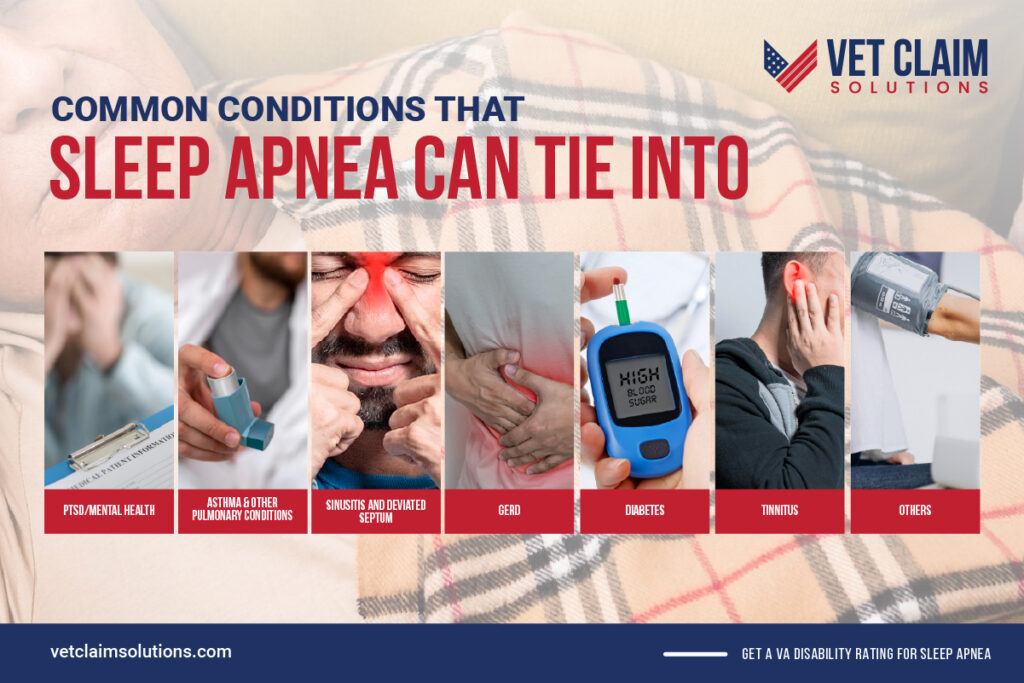
(1) PTSD/Mental Health
(2) Asthma and other pulmonary conditions
(3) Sinusitis and deviated septum
(4) GERD
(5) Diabetes
(6) Tinnitus
(7) And others
II. The secondary tactic requires a nexus letter
To receive a secondary service-connected disability rating for sleep apnea, veterans must submit a Nexus letter from a physician outlining the connection between the two conditions. This letter must explain how the veteran’s service-connected condition is causing their sleep apnea and include any relevant medical evidence. The VA will review the letter and decide on their eligibility for benefits.
5. Types of Treatment for Sleep Apnea
a) Lifestyle changes
Lifestyle changes are often the first step in treating sleep apnea. This can include :
• Maintaining a healthy weight
• Avoiding alcohol and sedatives before bedtime
• Quitting smoking
• Sleeping on your side instead of your back
• Exercising regularly
b) Continuous Positive Airway Pressure (CPAP) Therapy
CPAP therapy is one of the most common treatments for sleep apnea and involves wearing a mask at night that delivers air pressure to help keep your airways open. This is usually recommended for veterans with moderate to severe sleep apnea and can effectively control symptoms.
c) Oral Appliance Therapy
Oral appliance therapy is another option for veterans with mild to moderate sleep apnea who cannot use CPAP therapy. This involves wearing a custom-fitted mouthpiece that helps keep the airway open while sleeping.
d) Surgery
In some cases, surgery may be recommended for veterans with sleep apnea. This can include procedures such as uvulopalatopharyngoplasty (UPPP) or maxillomandibular advancement (MMA), designed to open the airway and reduce sleep apnea symptoms. However, these surgeries have a high failure rate and should only be considered after other treatments have been exhausted.
e) Other Treatments
In addition to the treatments mentioned above, other treatments can help veterans manage their sleep apnea symptoms. These include:
• Nasal decongestants
• Humidifiers
• Oxygen therapy
• Medications
• Positional therapy
• Weight loss (if necessary)
• Home sleep testing kits
It’s important to speak with your doctor or specialist to determine the best treatment plan for you.
With proper diagnosis and treatment, sleep apnea can be managed, and veterans can enjoy a good night’s sleep. Contact your local VA hospital to discuss options if you think you are suffering from sleep apnea.
6. Submitting a Claim for Sleep Apnea and How to Win it
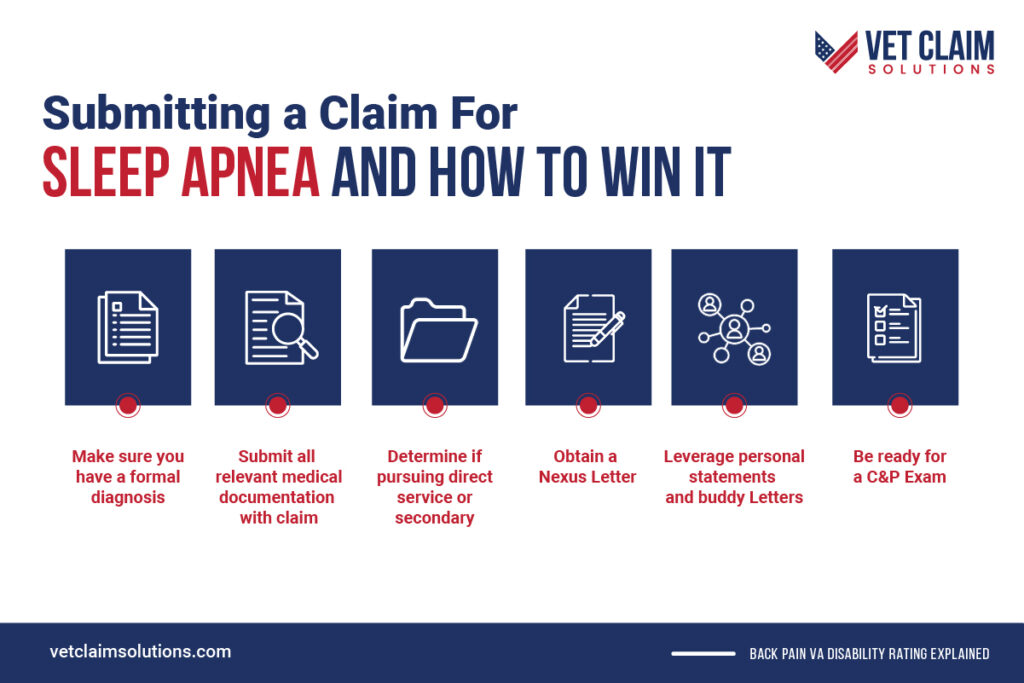
Submitting a claim for sleep apnea can be complicated and involve gathering extensive medical evidence. The key to winning your VA disability claim is ensuring that your evidence demonstrates a clear connection between your service-connected condition and your sleep apnea.
To ensure the best chance of success, make sure you:
a) Make sure you have a FORMAL diagnosis
Getting a proper diagnosis from a physician or specialist is important to qualify for benefits. The doctor should provide documentation of the diagnosis, such as an official sleep study, medical history, and any relevant test results.
b) Submit All Relevant Medical Documentation with Claim
When submitting your claim, make sure to provide all relevant medical documentation. This should include the diagnosis, sleep study results, and any other medical evidence that outlines the connection between your service-connected condition and sleep apnea.
c) Determine if pursuing direct service or secondary
Veterans can pursue either direct service or secondary service connection for sleep apnea. A direct service connection requires proof that the condition was caused or aggravated by an incident during active military duty. In contrast, a secondary service connection means that sleep apnea is related to another medical condition that has been proven to have been caused or aggravated by an incident during active military duty.
d) Obtain a Nexus Letter
A nexus letter is a document that outlines the medical evidence of how your service-connected condition is linked to your sleep apnea. This should be written by an experienced medical professional, such as a doctor or specialist, and submitted with your claim. It’s important to ensure the comprehensive nexus letter clearly states the connection between your service-connected condition and sleep apnea.
e) Leverage personal statements and Buddy Letters
Including personal statements and buddy letters from friends or family members who have witnessed your struggles with sleep apnea can be beneficial. These should detail how the condition has impacted your ability to function both physically and emotionally, as well as its effect on any activities of daily living.
By gathering all the relevant evidence and submitting a comprehensive claim outlining the connection between your service-connected condition and sleep apnea, you can win your claim.
f) Be ready for a C&P Exam.
It’s important to be prepared for a Compensation and Pension (C&P) exam, which is the next step after you submit your claim. This is an in-person examination with a doctor or specialist who will assess your condition and determine if it meets the criteria for service connection. It’s important to be honest and thorough during the exam, as this will help your case.
7. Conclusion
Sleep apnea can be a debilitating condition that affects many veterans. If you think your service-connected condition may be linked to sleep apnea, it’s important to gather all the relevant evidence and submit a comprehensive claim. With preparation, determination, and the right documentation, you can have the best chance of winning your sleep apnea claim.
FAQ’s

What is mixed sleep apnea?
Mixed sleep apnea is a sleep disorder in which both obstructive and central apneas occur during sleep. A combination of factors such as airway obstruction, neurological issues, and other medical conditions causes it.

What are some sleep apnea syndromes?
Sleep apnea syndromes include obstructive sleep apnea (OSA), central sleep apnea (CSA), and mixed sleep apnea. OSA is caused by an obstruction in the airway, while dysfunction causes CSA in the brain’s respiratory control center.

How are sleep apnea VA ratings determined?
The Veterans Affairs (VA) determines a disability rating for sleep apnea based on the severity of symptoms and the degree of functional impairment. A VA disability rating assesses a veteran’s overall level of disability, including physical and mental impairments that affect daily life.

Is it hard to get VA disability for sleep apnea?
Getting VA disability for sleep apnea can be difficult as it requires a comprehensive claim with medical evidence and documentation of the connection between the condition and service-connected disability. However, with proper preparation and thorough documentation, it is possible to win a claim for sleep apnea.

